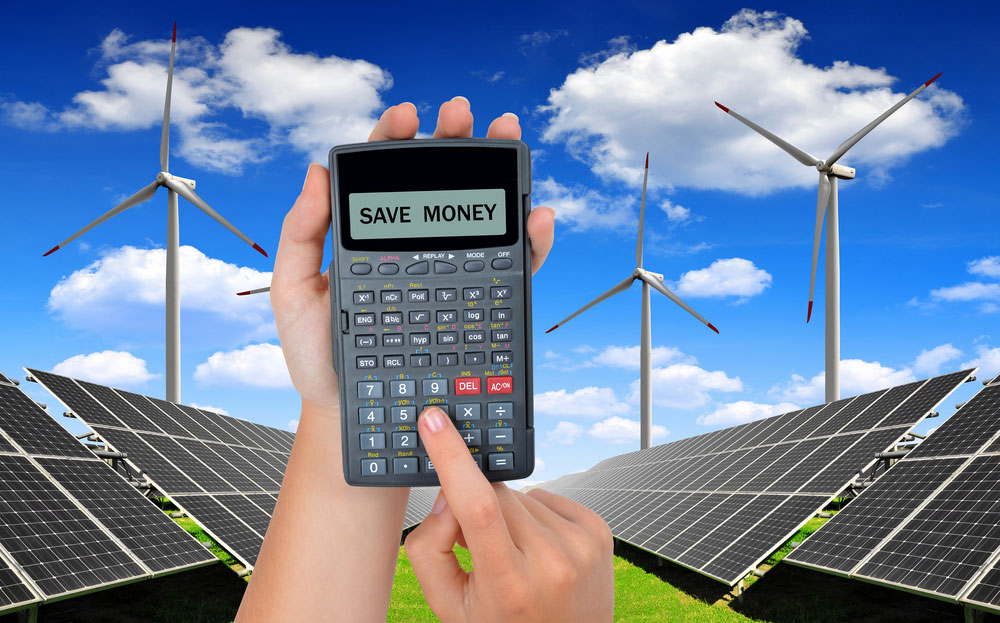The average cost of solar panels in the U.S. is about $20,000, which is a significant drop from 10 years ago (when the average cost was more than $50,000). Now, the average cost of a solar panel installation is anywhere from $17,430 to $23,870 after taking the federal solar tax credit into account. On a cost-per-watt basis, the price of solar panels is an average of $2.95 per watt (which is before incentives). This is based on marketplace data from thousands of users across 37 states and Washington D.C.

What Can Affect the Cost of Installing Solar Panels?
There are a lot of things that can affect the price of installing solar panels. Because it’s such a unique product, the price you’ll pay to get them installed will depend on your specific situation as well as other factors related to your property and your electricity use. Here are some of the common things that can influence the cost of solar panels:
- System Size — The bigger your solar panels, the more expensive it will be to install. But the average per-unit price for solar panels decreases as the system size increases.
- Location — Pricing can also vary by location, which can lead to differences in both local quoting trends and system size differences. Areas with a larger system size will have lower average cost for installing solar panels.
- Panel Brand and Quality — Like any other product or appliance, solar panels can come in varying degrees of quality (which often depends on the brand).
- Panel Type — The type of panel you install (which will often be monocrystalline, polycrystalline, or thin-film) will have a direct impact on the quality of the installation. In this case, higher quality means a higher price.
- Roof Characteristics — The cost of a solar panel installation doesn’t just come from the equipment being used. The installer will also charge you based on the difficulty of the installation, so having a more complicated roofing system will increase the cost of the system.
- Labor — Solar panel companies charge different labor rates for their work. So, you may want to pay a higher price for a more reputable company with better reviews and a shorter timeline for installation.
- Permitting and Interconnection — While it’s not a huge factor, paying for permits and your interconnection fee to the grid will add a little more to the cost of your solar panel installation.
Be sure to speak to a professional for more information.
How Do You Pay for a Solar Panel Installation?
Once you have determined the cost of installing solar panels for your home, you need to decide how you’ll pay for it. There are three main financing options for residential solar system:
- Cash Purchase — This is a good option if you want to maximize your savings on a solar panel installation (provided that you have enough money to pay for the system upfront and you have enough tax liability to take advantage of the solar tax credit).
- Solar Loan — This is a good choice if you don’t want to get the amount of cash you need to pay for a solar panel system upfront and you still want to maximize the savings on your energy bills (while being able to take advantage of all the available incentives and rebates).
- Solar Lease — Also called a PPA, a solar lease is a good option if you want someone else to monitor and maintain the system. It’s also a good option if you aren’t eligible for any tax incentives or if you just want to reduce and/or lock in your monthly electricity bill.
Be sure to speak to a professional for more information.
How Long Does It Take to Break Even on Solar Panels?
It takes an average of 8.7 years to get back the upfront cost of a solar panel installation, but it’s better to think of solar panels as an investment instead of as a single product that you’re buying. The point that you break even on solar panels (which is called the “solar payback period”) can be calculated by dividing your combined costs (which is the gross amount of your panel installation minus any incentives and rebates) by your annual financial benefits (which is the amount you save on electricity combined with any eligible incentives and rebates).
Your payback period will depend on a few things, and it includes your electricity rates and energy usage. As energy costs continue to go up, you’ll be able to protect yourself from these rising prices by getting solar panels for your home. The faster energy prices increase, the shorter your payback period will be.
If you’re looking for one of the best places for installing solar panels in Corpus Christi, be sure to reach out to Solar Power Integrator.
